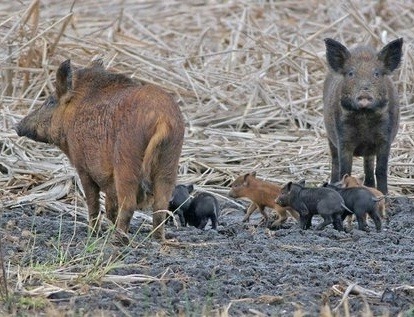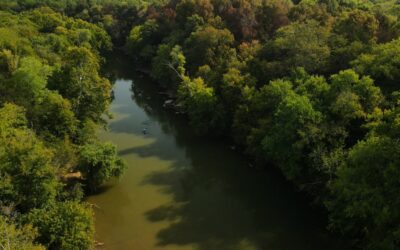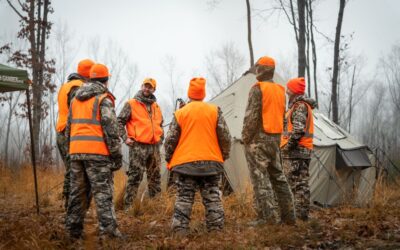The Federation is part of a Memorandum of Understanding initiated by the Tennessee Wildlife Resources Agency that is taking aggressive measures to stop the epidemic of feral hog population growth across Tennessee.
In 2011, the Tennessee Wildlife Resources Agency took aggressive measures to address a rapidly spreading epidemic:
Invasive, non-native wild pigs were taking over the landscape.
The Agency delisted the hogs as a big game species and began working with landowners to kill the pigs by virtually any means necessary.
An alarming trend was populations arising in non-contiguous areas. People were transporting and releasing wild pigs as a way to perpetuate the hunting opportunity.
Memorandum of Understanding
TWF was an early leader in dedicating resources to support the passage of a new law strengthening the penalties for illegal translocation of wild-appearing swine. The Federation and TWRA also joined into a Memorandum of Understanding with the state Farm Bureau Federation, Soybean Producers, Pork Producers, departments of health and agriculture, and eventually numerous other conservation organizations. The idea is to work towards the eradication of wild hogs where practical and to control populations elsewhere.
Under the provisions of the new law, which went into effect July 1, 2012, a person who illegally transports or releases wild hogs (i.e., wild-appearing swine) into the wild without documented approval from the state Department of Agriculture can be charged with a Class A misdemeanor, fined as much as $2,500 and sentenced to up to 11 months and 29 days in jail for each wild-appearing swine illegally translocated. To date, at least two cases have been prosecuted under the new law.
The pigs can wipe out agricultural crops and wildlife habitats.
The pigs can wipe out agricultural crops and wildlife habitats with amazing efficiency and are prolific reproducers, with a sow capable of bearing a litter of 12-15 piglets every 115 days. They do massive damage to the land through feeding and wallowing; they are also omnivorous and will eat just about anything they can find. Studies have clearly shown that the hogs eat turkey eggs and poults, and even the occasional fawn or another unsuspecting mammal. Other ground-nesting birds, amphibians, and reptiles can suffer population decreases, and the pigs serve as a reservoir for diseases that can affect both livestock and humans.
Wild hogs also root up acres of land, which requires significant time and money to repair.
In the U.S., damage caused by wild hogs is conservatively estimated at $1.5 billion annually.
While the Federation celebrates the passage of the new law and the ongoing effort to galvanize all of the stakeholders on the issue, the battle against wild hog proliferation is not one we can see winning anytime soon. Nevertheless, we will continue to work relentlessly toward efficient control solutions.




